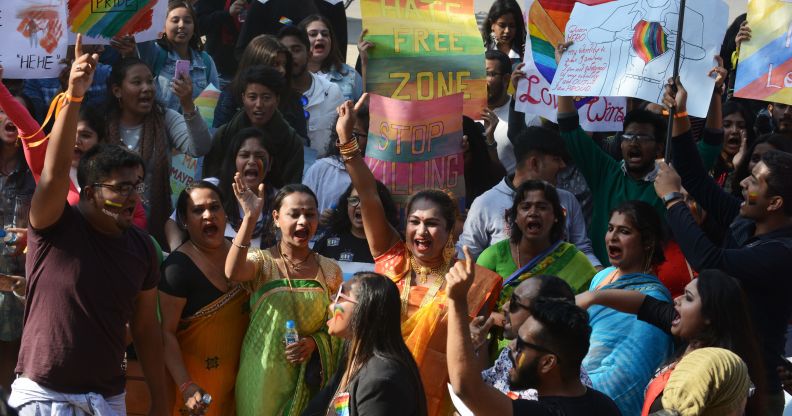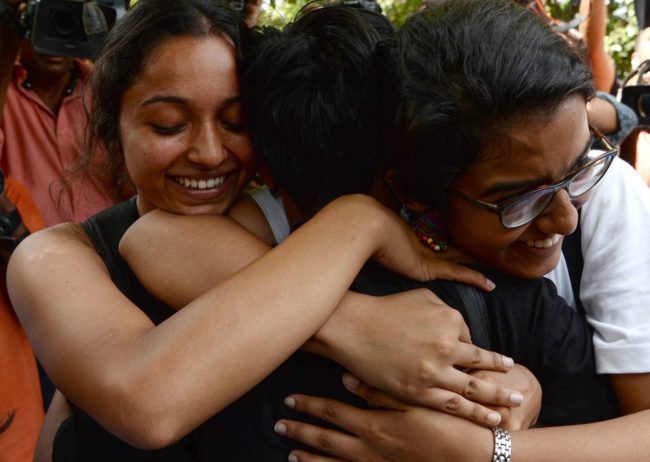Indian man claims lesbian used black magic to ‘marry’ his daughter

Years of campaigning eventually led to the decriminalisation of gay sex in India in 2018 (DIPTENDU DUTTA/AFP/Getty)
Indian police are investigating a man’s claim that a lesbian woman used black magic to convince his daughter to register their relationship in a symbolic wedding ceremony.
On Saturday (January 12), Sabitri Parida, 26, and Monalisa Nayak, 27, became one of the first same-sex couples to register their relationship since the country’s Supreme Court decriminalised gay sex in September, The New Indian Express has reported.
However, Monalisa’s father Antrajami Nayak has claimed that Parida performed “black magic on my daughter when she was at her uncle’s house.”
The allegations have prompted a police investigation into the lesbian pair, who said their vows at a ceremony in Kendrapara, east India.
“The girl will be interrogated to ascertain whether she has been forced to maintain the relationship with the other girl or it was her own choice,” said Pattamundai Police Station officer Pramod Mallick.
Indian lesbian couple happy with union
The women, who work together and have been in a relationship for four years, said they were delighted to tie the knot in the symbolic ceremony.
They explained that they “wanted to prove to society that there was nothing wrong in living with a partner of the same sex.”
“Our marriage will be a victory against the stigma and humiliation that our community has been facing across the country”
— Indian lesbian couple
“Both of us rejoiced at the scrapping of Section 377 by the Supreme Court on September 6 last year,” they added.
The couple said their parents had asked them to break up because they did not approve of their relationship, but that they were happy together.
They added that the symbolic union was a triumph for lesbian women and LGBT+ people in general in India.

LGBT activists celebrated after Section 377 was struck down in September (SAJJAD HUSSAIN/AFP/Getty)
“Our marriage will be a victory against the stigma and humiliation that our community has been facing across the country,” they said.
They are planning for one of them to adopt a child using the Hindu Adoption and Maintenance Act, which allows unmarried Hindu women to legally adopt.
Another Indian lesbian got ‘married’ last year
On December 28, two lesbian women who were separated by their families and forced into arranged marriages tied the knot in a symbolic ceremony.
The brides, who are 24 and 26 and come from the northern town of Hamirpur, reconnected with each other after divorcing the men they were coerced into marrying.
They traded garlands in a temple ceremony which has not been recognised by authorities.
The newlyweds, who were not named for their safety, were optimistic after the ceremony. One said: “Our lawyer has told us that since the Supreme Court has done away with Section 377, we can stay together.
“No one can trouble us. We have been living together as a couple for some time now.”

